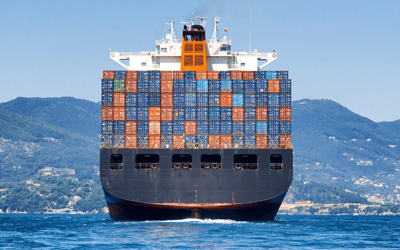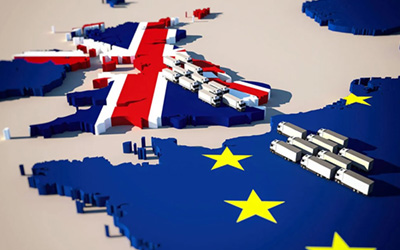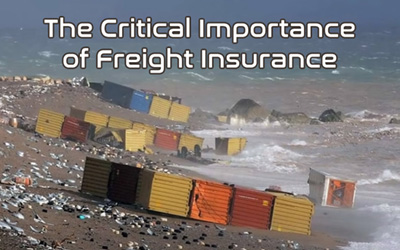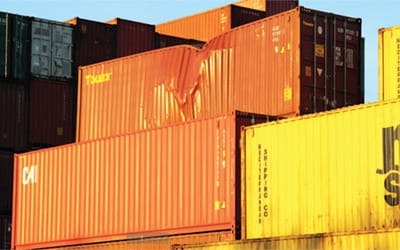Navigating the Seas of Change: The Future of Ocean Shipping & Ports
In the realm of international trade, the lifeline of commerce lies in the vast expanse of ocean freight and bustling ports. These maritime giants, laden with goods ranging from cutting-edge electronics to heavy-duty machinery, underpin the global exchange of products.
This article, brought to you by SARR Logistics UK, embarks on a journey into the dynamic world of ocean shipping and ports, uncovering what the future holds for this pivotal industry.
The Tides of Transformation: Ocean Freight's Evolution
Ocean freight has long been the cornerstone of global trade, ferrying a staggering 80% of the world’s trade by volume and over 70% by value across the world’s waters.
It serves as the bridge that connects distant continents, ensuring that goods manufactured in one corner of the globe can find their way to consumers thousands of miles away. However, the future promises significant transformations.
Setting Sail for Sustainability
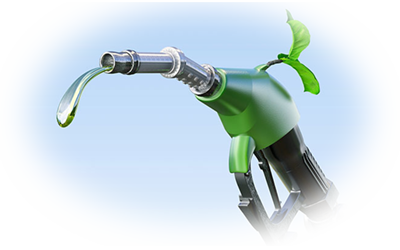 Over the next decade, the winds of change will blow strongly toward sustainability. The shipping industry faces mounting pressure to reduce its environmental footprint. In response, companies are actively exploring alternative fuels such as liquefied natural gas (LNG) and hydrogen to power their vessels.
Over the next decade, the winds of change will blow strongly toward sustainability. The shipping industry faces mounting pressure to reduce its environmental footprint. In response, companies are actively exploring alternative fuels such as liquefied natural gas (LNG) and hydrogen to power their vessels.
The rise of wind-assisted propulsion systems and electric ships is also gaining momentum. Regulatory bodies, too, are stepping up their efforts to rein in emissions from the shipping industry.
The International Maritime Organization (IMO) is leading the charge with regulations like the International Maritime Solid Bulk Cargoes (IMSBC) Code and the Energy Efficiency Existing Ship Index (EEXI) aimed at promoting eco-friendly practices.
The next decade will bear witness to a monumental shift towards decarbonization in ocean freight. Leading industry players have set ambitious goals, with the IMO targeting a minimum 40% reduction in carbon intensity by 2030 and the eventual adoption of zero-emission vessels.
To achieve these lofty objectives, investment in zero-emission technologies is paramount. Emerging solutions like hydrogen fuel cells, ammonia, and advanced batteries hold the promise of greener voyages. The collaboration between the public and private sectors will prove instrumental in driving the development and adoption of these environmentally friendly technologies.
Sailing into the Digital Horizon
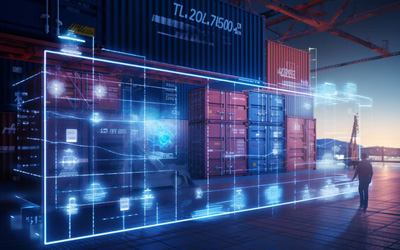 The ocean freight industry stands on the precipice of a digital revolution. Automation and digitalization are poised to streamline operations, enhance efficiency, and elevate customer experiences. Digital platforms and marketplaces are becoming ubiquitous, connecting shippers and carriers with newfound efficiency.
The ocean freight industry stands on the precipice of a digital revolution. Automation and digitalization are poised to streamline operations, enhance efficiency, and elevate customer experiences. Digital platforms and marketplaces are becoming ubiquitous, connecting shippers and carriers with newfound efficiency.
These platforms empower real-time cargo tracking, streamlined shipment booking, and route optimization, ultimately reducing costs and increasing transparency.
Within ports, the integration of 5G and the Internet of Things (IoT) is fostering real-time data exchange between ships, infrastructure, and logistics providers. Predictive analytics, powered by machine learning, are enhancing demand forecasting and route optimization, curbing costs and minimizing environmental impact.
Ports are also undergoing significant transformations, with automated container handling systems, autonomous cranes, and smart container terminals poised to usher in shorter turnaround times for vessels, alleviating congestion and delays.
E-commerce and the Resilient Supply Chain
The rise of e-commerce has exerted profound influence on ocean freight. With consumers clamoring for faster deliveries and a wider product range, shippers are adapting to meet these demands. Consequently, smaller, more frequent shipments are becoming the norm, with significant implications for logistics and transportation.
The imperative of supply chain resilience has come to the fore, particularly in the wake of disruptions caused by the Covid-19 pandemic. Firms are diversifying their supply chains, exploring alternative sourcing options, and fortifying inventory management. In this endeavor, the ocean freight industry will play a pivotal role in the construction of more resilient supply chains.
Navigating the Frozen Frontiers: Shipping Routes and the Arctic
As climate change accelerates, new shipping routes are emerging in the Arctic. The Northern Sea Route, skirting the Russian coast, offers a shortcut connecting Europe and Asia, drastically reducing transit times. However, these routes pose challenges related to icy conditions, navigation complexities, and geopolitical considerations. Nations vie for control and influence over these strategic waterways, further complicating the future of Arctic shipping. Ongoing conflicts in regions such as Russia and Ukraine have ripple effects on multiple countries along the Arctic route, necessitating cautious consideration of its long-term viability.
Securing the High Seas: Safety and Cyber-Security
 Safety and security in ocean freight stand as paramount concerns. The spectre of cybersecurity threats looms large, compelling the industry to invest in robust measures to safeguard vessels and cargo from digital attacks. Additionally, safety protocols and emergency response capabilities will remain top priorities, with technology playing a pivotal role in their implementation.
Safety and security in ocean freight stand as paramount concerns. The spectre of cybersecurity threats looms large, compelling the industry to invest in robust measures to safeguard vessels and cargo from digital attacks. Additionally, safety protocols and emergency response capabilities will remain top priorities, with technology playing a pivotal role in their implementation.
Ports: The Beating Heart of Ocean Freight
Shipping ports serve as the bustling gateways where the journey of ocean freight begins and ends. These maritime hubs act as pivotal nodes in the global supply chain, facilitating the flow of goods between nations and continents.
Their significance in ocean freight cannot be overstated, as they provide berths and facilities for cargo ships, enabling the transition of goods from the vast oceans to the intricate web of road, rail, and air transportation.
Trade Engines and Economic Catalysts
Ports are the economic engines that drive regions and countries forward. They generate employment opportunities, stimulate local businesses, and make substantial contributions to a nation’s GDP. The volume of cargo coursing through a port often mirrors the economic prosperity of the surrounding area.
Ports located at strategic geographic crossroads, such as the Suez Canal or the Panama Canal, offer vital shortcuts that trim shipping times and costs, rendering them indispensable players in global trade dynamics.
Infrastructure & Innovation: Charting the Course Ahead
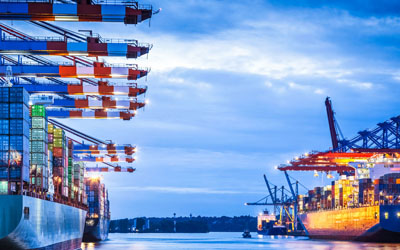 Modern ports boast cutting-edge infrastructure, featuring automated container terminals, efficient cargo handling equipment, and advanced security systems. They continually invest in innovation to boost efficiency and reduce environmental impact.
Modern ports boast cutting-edge infrastructure, featuring automated container terminals, efficient cargo handling equipment, and advanced security systems. They continually invest in innovation to boost efficiency and reduce environmental impact.
To meet the burgeoning demand for ocean freight services, expansion of infrastructure is imperative. Ports must embark on a journey of facility upgrades, capacity augmentation, and congestion alleviation. Furthermore, the construction of larger, more efficient vessels stands as a prerequisite to satisfying the evolving demands of global trade.
In conclusion:
The world of ocean freight teeters on the brink of profound transformation. Sustainability, digitalization, and heightened resilience serve as the hallmarks of the industry’s future.
As new technologies are embraced, and regulations evolve, the ocean freight sector will continue to adapt, ensuring its enduring role as a driving force in global trade for the foreseeable future and beyond. Sustainability and the reduction of carbon emissions is at the forefront of our journey, which is why you can trust that SARR Logistics UK will get your ocean freight moving in the most efficient and carbon neutral way possible.


